From wacky crime capers and dystopian video game adaptions to sweeping historical epics, 2024 had a little of everything
Credit: Aurich Lawson | Getty Images
Editor’s note: Warning: Although we’ve done our best to avoid spoiling anything major, please note this list does include a few specific references to several of the listed shows that some might consider spoiler-y.
This was another good year for television, with established favorites sharing space on our list with some intriguing new shows. Really, 2024 had a little of everything, from wacky crime capers (Bad Monkey) and Satanic Panic (Hysteria) to dystopian video game adaptations (Fallout) and sweeping historical epics (Shōgun), with plenty of genre-mashup delights in between. While streaming platforms continue to dominate, the selection is more evenly distributed across them this year, with only Hulu and Netflix snagging more than two slots (depending on whether or not you lump Hulu together with Disney+ after the merger).
As always, we’re opting for an unranked list, with the exception of our “year’s best” vote at the very end, so you might look over the variety of genres and options and possibly add surprises to your eventual watchlist. We invite you to head to the comments and add your own favorite TV shows released in 2024.
Interior Chinatown (Hulu)
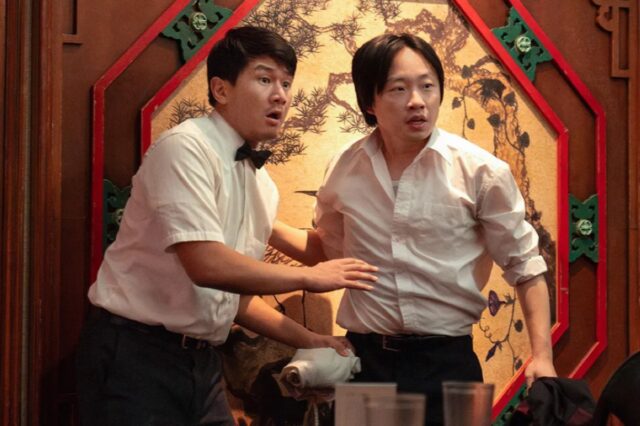
Credit: Hulu
This meta action comedy is showrunner Charles Yu’s adaption of his own 2020 satirical novel of the same name, which employed the screenplay format as a narrative structure. Interior Chinatown keeps that concept; here, the characters are, in turn, characters in a police procedural called Black and White, clearly modeled on the Law and Order franchise.
Jimmy O. Yang plays Willis Wu, a waiter in a Chinese restaurant who is initially unaware that he is just a background character on the show within the show. Then he witnesses a kidnapping and detectives Sarah Green (Lisa Gilroy) and Miles Turner (Sullivan Jones) are called in to investigate. They actually can’t see or hear Willis—or any background character, for that matter—unless he happens to have a purpose to the spotlight action. So Willis and Chinatown’s residents are just going about their business and every now and then the spotlight flashes on and Green and Turner saunter through for a “scene.”
As Willis tries to solve the case of his missing older brother with the help of supporting character Detective Lana Lee (Chloe Bennet), he uncovers a possible criminal underground enterprise in Chinatown and some well-kept family secrets. The writing is clever, the plot twists abound, the characters are fully drawn, and there are plenty of humorous and heartfelt moments to break up the main action. Special shout-out to Ronny Chieng as Willis’ best friend Fatty, who has to take over Willis’ waiter duties and inadvertently becomes a viral sensation with his rude outbursts directed at non-Asian customers. White people actually start flocking to the restaurant to be verbally abused by “Mean Waiter,” much to Fatty’s exasperation. It’s those kinds of unexpected twists that make Interior Chinatown unique.
—Jennifer Ouellette
The Penguin (Max)
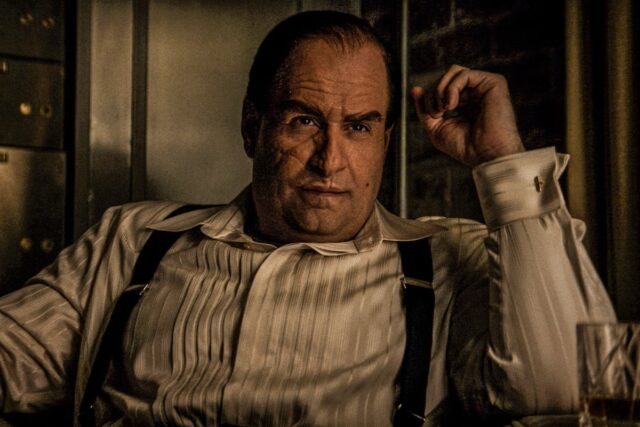
Credit: HBO/Max
My pick for the best television show in 2024 is a limited series based on the Batman universe character: The Penguin. It’s a sequel of sorts to The Batman film released in March 2022. The best way to describe the series, I believe, is The Sopranos comes to Gotham, but with even more grit and atmosphere. Batman is not involved at all. Colin Farrell plays the Penguin, whose real name is Oz Cobb, and who is struggling to rise to power in the fictional city’s criminal underworld. Viewers have to struggle to recognize Farrell, who is acting a tour de force beneath some pretty involved prosthetics and makeup.
The other standout performer is Cristin Milioti, who plays a presumed psychopathic serial killer but, well, I don’t want to spoil it. She’s fabulous. The whole show is amazing, actually, and I’m not normally one for comic book movies or television. I don’t recommend binging it but rather sipping each of the eight episodes as if it were fine wine.
—Eric Berger
Sweetpea (Starz)
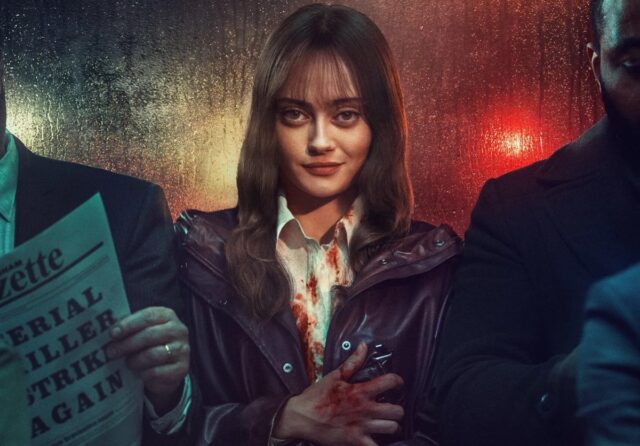
Credit: Starz
Are killer psychopaths born or made? One might ponder that question after watching Sweetpea, the story of a shy young woman who has been bullied or ignored much of her life and finally snaps, with fatal consequences. Based on the novel by CJ Skuse, the series stars Ella Purnell (of Yellowjackets fame) as Rhiannon, an administrative assistant at her local newspaper who lives with her ailing dad and dog. But then everything goes wrong at once: her father dies, her dog is run over, and her sister insists on selling the family home, forcing Rhiannon to find a new place—and the estate agent is Rhiannon’s high school nemesis, Julia (Nicole Lecky).
Sweetpea is essentially a revenge fantasy. It would be so easy for the viewer to just become exasperated with Rhiannon’s passivity and occasional self-pitying rants, but Purnell’s intense performance brings out the rage and violence simmering underneath that quiet surface. Rhiannon really is invisible to most people, brought home when she takes refuge from the rain at an underpass and a passing drunk guy ends up peeing all over her. “Oh, sorry, didn’t see you there,” he shrugs. It’s a powerful moment when an enraged Rhiannon stabs this complete stranger over and over, screaming, “Can you see me now?” Along with the guilt and fear come increased confidence and strength, and maybe even a love interest—but can Rhiannon really get away with murder?
—Jennifer Ouellette
Matlock (CBS)
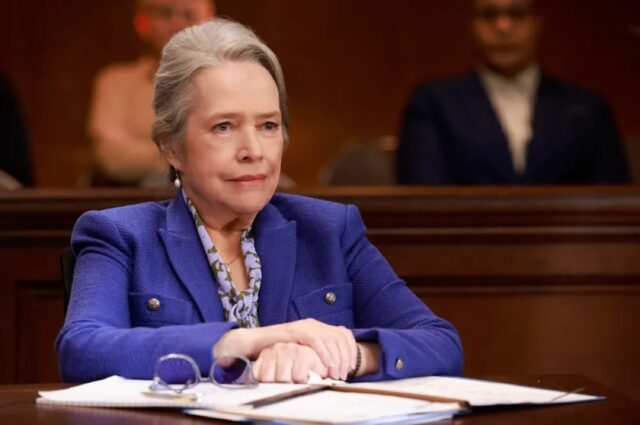
Credit: CBS
Children of the late ’80s/early ’90s will no doubt have fond memories of the popular mystery series/legal drama Matlock, starring Andy Griffith in the title role of Andy Matlock, criminal defense attorney. We now have a gender-flipped version starring Kathy Bates, but it’s not a remake. Rather, Bates plays a wealthy retired lawyer named Madeleine Kingston who goes undercover as a legal assistant at a large law firm, taking on the alias surname of Matlock because the show was one of her deceased daughter’s favorites.
Matty’s objective: to find evidence that the firm covered up the fact that an opioid manufactured by one of their pharmaceutical giant clients was highly addictive, thereby contributing to her daughter’s death by opioid overdose. But first she has to prove herself by helping win several smaller cases, all while juggling a dual identity and nosing around the firm’s files on the sly. Honestly, it’s refreshing to see a simple, case-of-the-week (with a longer season arc) network series with likable characters, good writing, and strong performances throughout the cast. It’s a winning combination that makes Matlock the perfect comfort watch.
—Jennifer Ouellette
Star Trek: Lower Decks S5 (Paramount+)
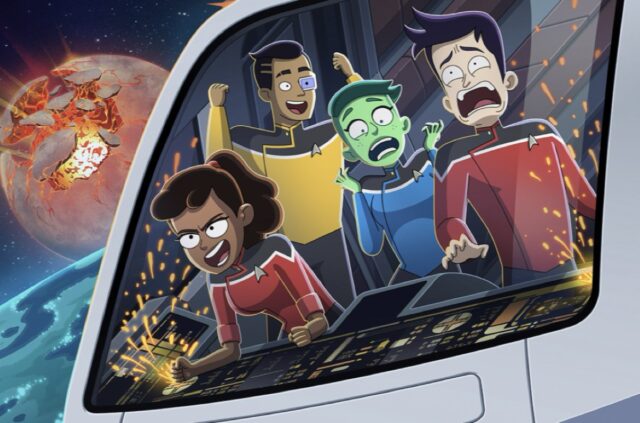
Credit: Paramount+
The animated adventures of the crew of the USS Cerritos had its fifth and final season this year. Set in a post-Voyager, pre-Picard timeframe, which for many is Starfleet in its golden era, it was initially dismissed by some as “Rick and Morty in space” due to previous work from its creators. But over the past five seasons, Lower Decks has proven to be Star Trek through and through—just animated and also funny. And quite bawdy.
It’s fair to say that there’s a lot of fan service in Lower Decks, but also that this fan likes what he’s being served. Deep cuts abound, from across decades of Trek canon, and like previous seasons, a number of guest stars show up in episodes, including Brent Spiner (Data in The Next Generation), Alfre Woodard (Lily Sloan in First Contact), Andrew Robinson (Elim Garak in Deep Space 9), Alexander Siddig (Julian Bashir in DS9), Jolene Blalock (T’Pol in Enterprise), and Garrett Wang (Harry Kim in Voyager). But perhaps not entirely as you might expect them—the overarching plot this season involves rifts being opened to parallel universes in the multiverse, potentially destroying them all.
At the time of writing the final episode has yet to air, but the one that precedes it (“Fissure Quest”) is Lower Decks at its very finest. It paints Starfleet at its optimistic best, pokes a whole bunch of nostalgia buttons, and makes me laugh repeatedly. Not every episode in season 5 has been quite as good, but it wouldn’t be real Trek if there wasn’t the occasional miss.
It is within the realms of possibility that Paramount+’s cancellation will not be the end for the show, with fans hoping another streaming network could pick it up, the way that Netflix took over showing the second season of Star Trek: Prodigy that Paramount wanted to shelve. Right now, the odds of that happening are pretty remote, though, and in the spirit of optimism best embodied by Mariner and her gang, let’s not be sad it’s over, let’s be happy it happened.
—Jonathan Gitlin
The Cowboy Channel’s “Texas Swing”
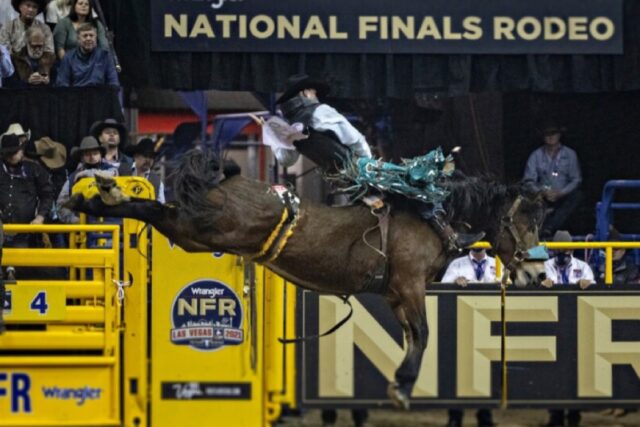
Credit: Steve Wrubel/The Cowboy Channel
My personal end-of-year TV list would never be complete without a nod to The Cowboy Channel, i.e., the only place where you can follow your favorite cowboys and cowgirls throughout the rodeo season as they compete to rack up enough wins to qualify for the Wrangler National Finals Rodeo (NFR) in Las Vegas in December. Seven years after its founding, The Cowboy Channel has clearly had a significant impact on boosting the visibility of the sport, as well as attendance at live rodeo events.
This year, we’re focusing on the so-called “Texas Swing”: five major rodeos in the Lone Star state running from the end of January through mid-April, in Fort Worth, San Antonio, Houston, Austin, and San Angelo. The rodeo season runs year-round, officially from October 1 through September 30. But the Texas Swing collectively pays out several million dollars, giving athletes a chance to take an early lead in the rankings. (Most event winners at the Houston rodeo in particular typically end up qualifying for the NFR.) So there’s a lot at stake, and The Cowboy Channel’s extensive coverage and commentary is essential viewing for following those stakes.
—Jennifer Ouellette
The Lincoln Lawyer S3 (Netflix)
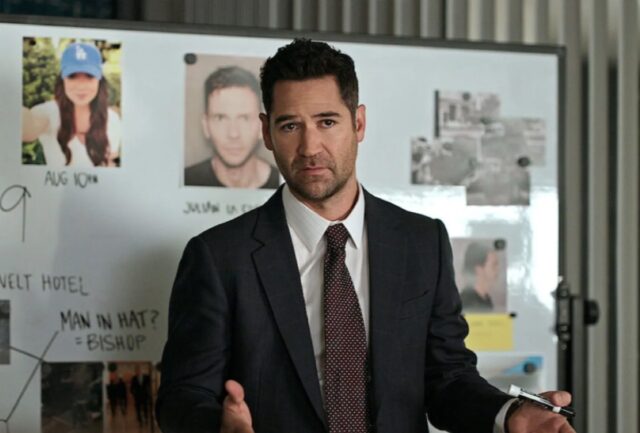
Credit: Netflix
Crime novel publishing juggernaut Michael Connelly already had one great TV series to his name, based on fictional detective Harry Bosch (the eponymous Bosch). Then Netflix developed The Lincoln Lawyer, based on Connelly’s criminal defense attorney Mickey Haller, starring Manuel Garcia-Rulfo in the title role. The nickname comes from the fact that Mickey often works out of his Lincoln Navigator. (There was also a 2011 film adaption, The Lincoln Lawyer, starring Matthew McConaughey, but the two projects are very different.)
Season 3 was based on Connelly’s 2013 novel, The Gods of Guilt, and it’s adapted exceptionally well for television. As always, Garcia-Rulfo is terrific as Haller, surrounded by a top-notch supporting cast, notably Mickey’s legal aide and ex-wife, Lorna (Becki Newton), freelance investigator Cisco (Angus Sampson), and Izzy (Jazz Raycole), a former client who becomes Mickey’s personal driver (and later the office manager). But as with Bosch, it’s the city of Los Angeles that truly shines, a character in its own right, always lurking in the background.
—Jennifer Ouellette
True Detective: Night Country (HBO)
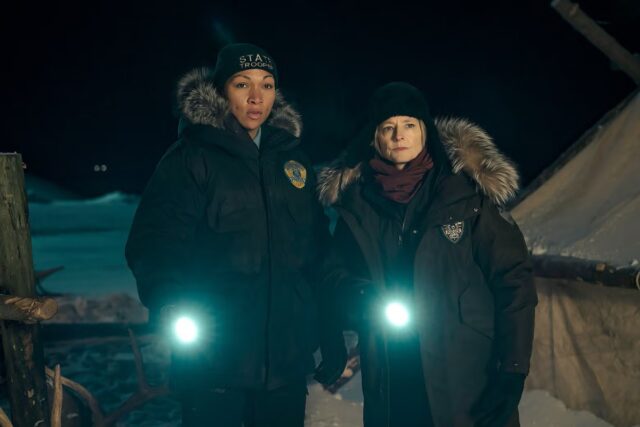
Credit: HBO
HBO’s True Detective, created by Nic Pizzolatto, was a pop-culture sensation when it debuted in 2014. (Remember “time is a flat circle”?) Its sophomore outing lacked the original’s surreal magic, but S3 was a solid return to form, mixing elements of noir and procedural drama to weave a haunting tale of fractured time and memory. Pizzolatto wasn’t involved in this year’s even stronger fourth season, subtitled Night Country, with Issa Lopez taking over as showrunner. Lopez has reinvented the series, creating what she viewed as a “dark mirror” to Pizzolatto’s three seasons that stands on its own.
Night Country is set in the fictional town of Ennis, Alaska, where eight scientists at a research station mysteriously go missing one night with no trace, leaving a severed tongue at the scene. They are found soon after out on the ice, naked bodies tangled and frozen together in a pile, with their clothes neatly folded on the snow. It’s up to Detectives Liz Danvers (Jodie Foster) and Evangeline Navarro (Kali Reis) to crack the case. Night Country only tangentially evokes the Yellow King mythology of the prior three seasons, but it does capture the anthology series’ essential spookiness and supernatural undertones despite the all-too-human solution to the case.
—Jennifer Ouellette
Only Murders in the Building S4 (Hulu)
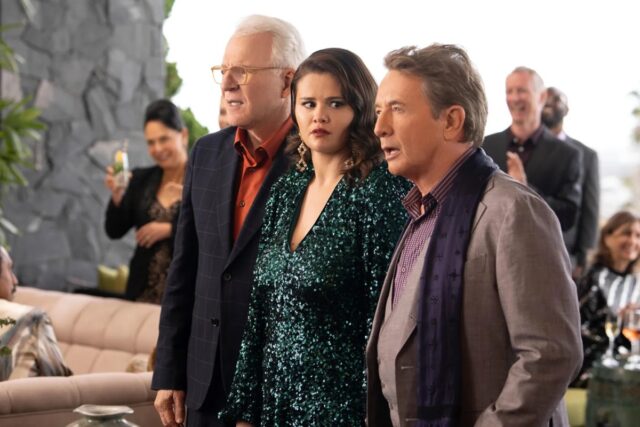
Credit: Hulu
This charming Emmy-nominated comedy series has made our “Best of TV” list every season, and 2024 is no exception. Only Murders in the Building stars Steve Martin, Martin Short, and Selena Gomez as Charles, Oliver, and Mabel, all residents of the same Manhattan apartment complex, the Arconia. The unlikely trio teamed up to launch their own true crime podcast whenever someone died in the building under suspicious circumstances, chronicling their independent investigation to solve the murder. There’s no shortage of podcast fodder since this single building has a shockingly high murder rate.
This time around, the trio investigates the death of Charles’ longtime stunt double Sazz (Jane Lynch), who was shot dead in his apartment while he and his pals were celebrating wrapping the prior podcast season. It’s a complicated mystery involving the strange residents of the Arcadia’s West Tower, a bar specifically for stunt performers, and a film adaption of the trio’s first-season podcast. Eugene Levy, Zach Galifianakis, and Eva Longoria play fictional versions of themselves cast as Charles, Oliver, and Mabel, respectively, and naturally get into the sleuthing spirit. And Meryl Streep makes a welcome return as Oliver’s actress girlfriend Loretta.
This season was a bit more meta than the prior three, largely because so much of the action shifts to Hollywood for several episodes—every episode title is a reference to an actual film—as well as a foray to Long Island to hide out with Charles’ sister Doreen (Melissa McCarthy). That served to keep things fresh after four seasons; S5 will focus on the death of the building’s doorman, found floating in the Arcadia’s fountain in the season finale. OMITB will eventually run out of fresh takes on its clever concept, but it hasn’t done so yet.
—Jennifer Ouellette
The Sticky (Prime Video)
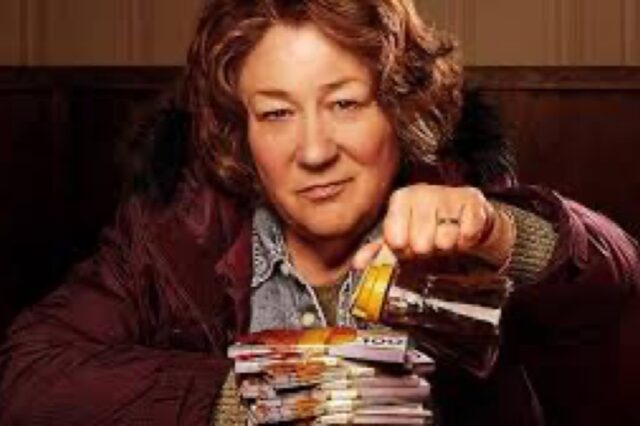
Credit: Prime Video
Perhaps you’ve heard of the infamous Great Canadian Maple Syrup Heist of 2011–2012, in which a group of thieves managed to steal over $18 million worth of maple syrup from a strategic reserve storage facility in Quebec. If not, you’ll probably find yourself googling it after watching The Sticky, a delightfully dark comic series very (very!) loosely based on the heist.
Margo Martindale plays Ruth Landry, a struggling maple syrup farmer who is about to lose her farm to the greedy head of the collective, Leonard (Guy Nadon). So she conspires with shady businessman Mike (Chris Diamantopoulos) and security guard Remy (Guillaume Cyr) to steal millions of dollars of maple syrup in revenge. Their elaborate plan soon hits all kinds of darkly hilarious snags that lead to more serious repercussions. With its flinty, morbid humor and collection of eccentric characters—including a star turn by Jamie Lee Curtis as a tough mafia enforcer named Bo Shea—The Sticky is definitely channeling the Cohn brothers’ Fargo. But series creators Brian Donovan and Ed Herro have added their unique stamp to make it very much their own.
—Jennifer Ouellette
St. Denis Medical (NBC)
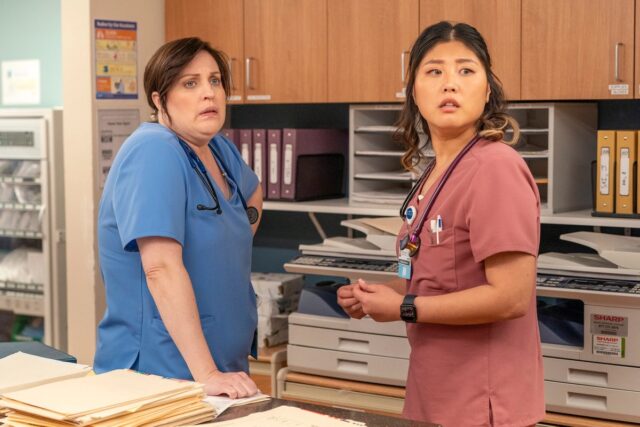
Credit: NBC
Just when we thought smart, sophisticated network sitcoms were a disappearing relic from the golden age of broadcast television, NBC comes out with St. Denis Medical, a thoroughly enjoyable mockumentary in the style of The Office and Parks and Recreation. Here the setting is the chronically underfunded ER of an Oregon hospital, and the camera crew follows the overworked doctors and nurses as they go about their daily duties.
You’ve got Joyce (Wendi McLendon-Covey), the ambitious executive director; Alex (Allison Tolman), the workaholic supervising nurse; Bruce (Josh Lawson), a cocky trauma surgeon; burnt-out emergency physician Ron (David Alan Grier); newly hired nurse Matt (Mekki Leeper), who hails from a strict religious group in Montana; and his crush, the cool and capable nurse, Serena (Kahyun Kim). The format may be familiar, but the show nonetheless feels fresh, thanks to top-notch writing and performances from its talented cast.
—Jennifer Ouellette
Yellowstone (Paramount+)
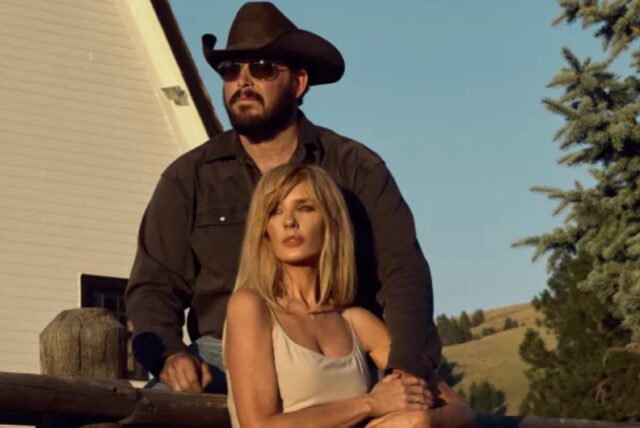
Credit: Paramount+
Series creator Taylor Sheridan first pitched this neo-Western drama as “The Godfather in Montana”; one might also think of it as Succession on a ranch. It follows the members of the Dutton family, led by patriarch John Dutton III (Kevin Costner), as they struggle to preserve their massive Montana cattle ranch: the titular Yellowstone. One source of tension is that the ranch shares borders with the Broken Rock Indian Reservation. But the biggest threats come from billionaire corporate land developers and scheming local government officials, eager to get their greedy hands on all that gorgeous acreage to build casinos, resort hotels, golf courses, and the like.
Yellowstone is basically a nighttime soap and a particularly good one, thanks to strong, complex characters and their interrelationships/intense personal conflicts. The Duttons are not good people, but nor are they entirely evil, despite doing many evil deeds—often for a good cause but not always. (The body count at the “train station” alone would get them multiple life sentences.) Seasons 2–4 represent the series at its peak. Alas, Costner left after the first part of S5; the second half unceremoniously kills off his character at the start of the first episode, with the remaining season dealing with the messy aftermath of what turns out to be an assassination.
I’ll be frank: Without Costner as an anchor, the second part of S5 just wasn’t as strong as prior seasons or even the first half of S5. There are several plot holes, extra scenes clearly included just to boost Sheridan’s ego, and the dialogue has become overly preachy and didactic—almost as annoying as Aaron Sorkin’s mini-sermons in later seasons of The West Wing, which is saying something.
Still, the show gave us one heck of a full-blown revenge fantasy finale. Yellowstone makes this year’s list because the series as a whole—and its supremely talented cast—deserves a fitting farewell for the top-notch entertainment it’s provided since 2018. Sure, there are spinoffs, including one in development featuring fan favorites Beth Dutton (Kelly Reilly) and Rip Wheeler (Cole Hauser). But there will never be anything quite like the OG.
—Jennifer Ouellette
Interview with the Vampire S2 (AMC)
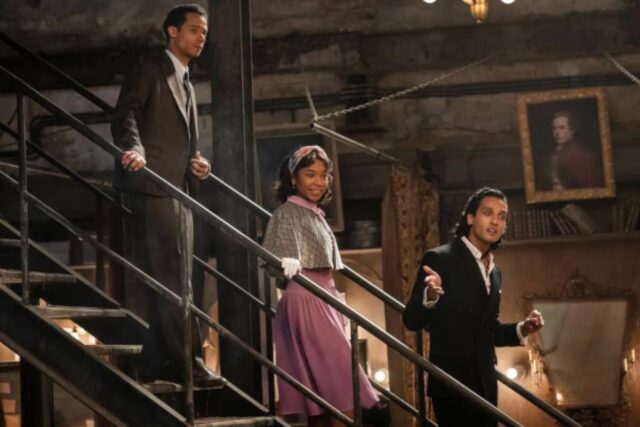
Credit: AMC
Anne Rice’s bestselling 1976 gothic horror novel gets a fresh adaptation for television that is markedly different in many ways from the 1994 film adaptation. The main character, Louis (Jacob Anderson), is reimagined as a mixed-race Creole pimp in New Orleans’ red light district rather than a white plantation owner. And child vampire Claudia (Delainey Haines in S2) is now 14 instead of a 5-year-old. The first season covered the novel’s first half, in which Louis shares, in flashbacks, what happened between him and the enigmatic vampire Lestat (Sam Reid) with journalist Daniel Molloy (Eric Bogosian).
That proved to be a toxic relationship that ended badly, with Louis and Claudia nearly killing Lestat and running away to Europe. In S2, they join up with a vampire coven in Paris led by the vampire Armand (Assad Zaman), hoping they have found a stable home. But it turns out the coven’s founder was none other than Lestat, putting that newfound family at risk. It’s hard to go wrong with Rice’s captivating storyline and unforgettable characters, especially with such strong performances from the main cast and evocative settings, bringing the written page to vivid life.
—Jennifer Ouellette
Bodkin (Netflix)
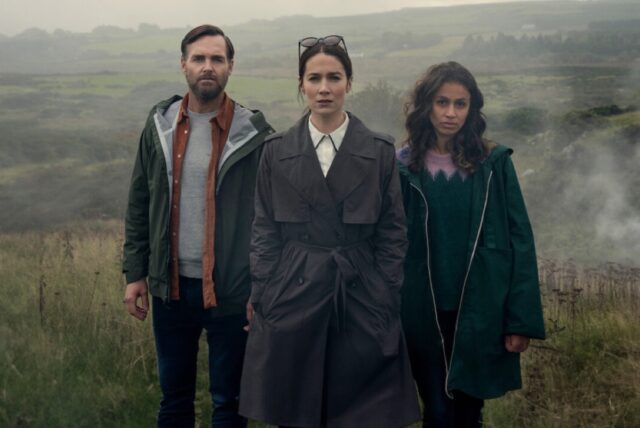
Credit: Netflix
This British satirical dark comedy features an American podcaster named Gilbert (Will Forte), who travels to a small Irish coastal town called Bodkin to record an investigative podcast about the disappearance of three people decades earlier during a Samhain festival. He’s aided by his assistant, aspiring journalist Emmy (Robyn Cara), and by a veteran Irish investigative journalist, Dove (Siobhan Cullen), on assignment in exile from London after a story falls apart when her whistleblower source unexpectedly dies.
Naturally the locals are not thrilled about podcasters digging up the past, but over seven episodes, Gilbert and his team not only solve the cold case, they heal a few long-standing emotional wounds in the process. The humor is more sly and subtle than, say, Only Murders in the Building, but Bodkin is nonetheless a quirky gem of a series, with a colorful setting filled with likable, eccentric characters. It’s worth a watch.
—Jennifer Ouellette
My Lady Jane (Prime Video)
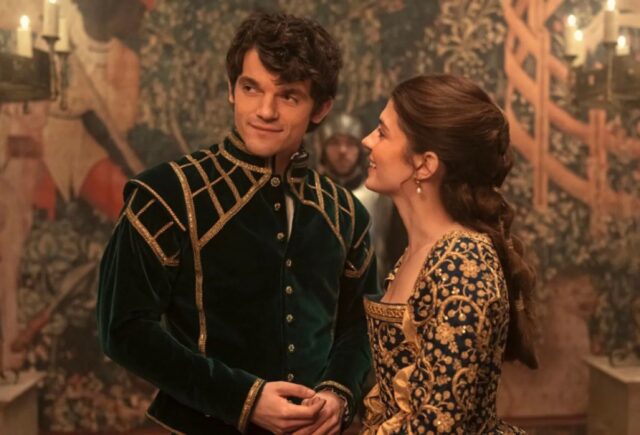
Credit: Prime Video
The tragic fate of Lady Jane Grey, aka the Nine Days’ Queen, is well-known to aficionados of English history. Named as Edward VI’s successor, she was named queen while still a teenager but quickly deposed in favor of Edward’s Catholic half-sister Mary; Jane was eventually executed. The historical fantasy series My Lady Jane offers an alternative scenario where Jane (Emily Bader) avoids that fate with the help of her eventual husband, Lord Guilford Dudley (Edward Bluemel), and humans who can take animal form known as Ethians. Ordinary humans are known as Verity, and the two sects are explicitly forbidden from mixing.
There is no sense in which My Lady Jane is intended as an accurate historical portrayal of 16th century England; the deliberate anachronisms alone are a testament to that, not to mention the constant presence of magic. Instead, showrunner Gemma Burgess has put together an irreverent engaging romp rife with witty banter, political intrigue, and a bit of derring-do—not to mention a killer soundtrack. Sadly, Amazon canceled the series after one season, much to the dismay of fans, including George R.R. Martin. So we won’t find out if Jane eventually figures out how to reclaim her throne from the scheming Mary.
—Jennifer Ouellette
Renegade Nell (Disney+)
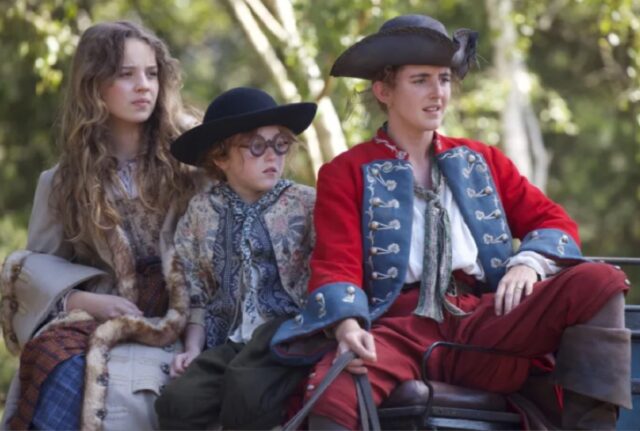
Credit: Disney+
Award-winning British TV writer Sally Wainwright is best known for the dramatic series Happy Valley (2014–2023) and Gentleman Jack (2019–2022), the latter produced jointly by BBC and HBO. Wainwright partnered with Disney+ for her latest series, the resolutely PG-13 Renegade Nell, which is a different beast altogether: a good old-fashioned, swashbuckling comic adventure with a supernatural twist, featuring a sassy cross-dressing heroine forced to turn to highway robbery to survive.
Set in 1705 during the reign of Queen Anne, the series stars Louisa Harland (Derry Girls) as Nell Jackson, widowed and possessed of occasional supernatural skills whenever someone threatens her, courtesy of a fairy sprite named Billy Blind (Nick Mohammed). Nell runs afoul of the louche, drunken offspring of the town’s landlord, things escalate, and Nell finds herself on the run and framed for murder, along with her two sisters, Roxy (Bo Bragason) and George (Florence Keen), and the Blanchefords’ former groomsman, Rasselas (Enyi Okoronkwo). The group gets further assistance from a charming aristocratic dandy/secret highwayman named Charles Devereaux (Frank Dillane).
The writing, pacing, and production values are top-notch, and the cast is terrific across the board. Renegade Nell keeps the action flowing and wisely never takes itself too seriously. Sure, there is injustice, class warfare, and strong intelligent women chafing within the strict confines of traditional binary gender roles. But Wainwright never lets the story get bogged down in heavy-handed symbolism or didacticism. Sadly, Disney+ canceled the series, but this one season stands just fine on its own.
—Jennifer Ouellette
The Decameron (Netflix)
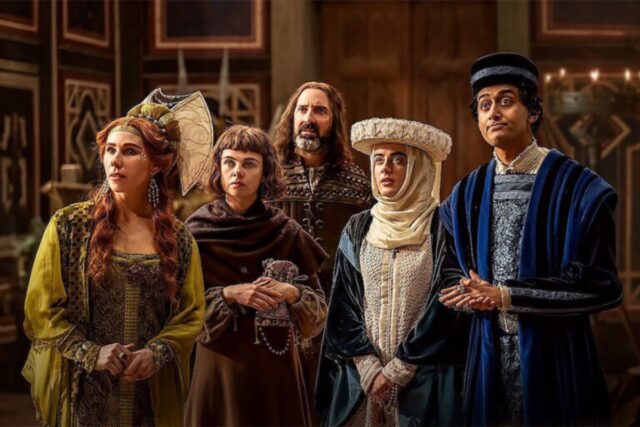
Credit: Netflix
Let’s get one thing straight: Netflix’s The Decameron has almost nothing to do with Boccaccio’s 14th century collection of stories, apart from the title and being set in the middle of the Black Plague in Florence. The main characters retreat to a secluded villa as bodies mount in the city, but they don’t sit around telling stories. They become the stories: mistaken identity, forbidden desires, illicit trysts, arranged marriages, and maybe even true love all factor into the plot, such that it is. And, of course, they must fend off others also fleeing the plague, including a ruthless band of mercenaries intent on taking over their villa.
Series creator Kathleen Jordan has put together a terrific cast with impeccable comic timing, well up to the task of playing into some pretty dark humor—death by Black Plague isn’t pretty, yet somehow you’ll find yourself chuckling about it. The Decameron is original, smartly silly, and quite unapologetically bawdy, making it a refreshing addition to the TV comedy landscape.
—Jennifer Ouellette
Get Millie Black (HBO)
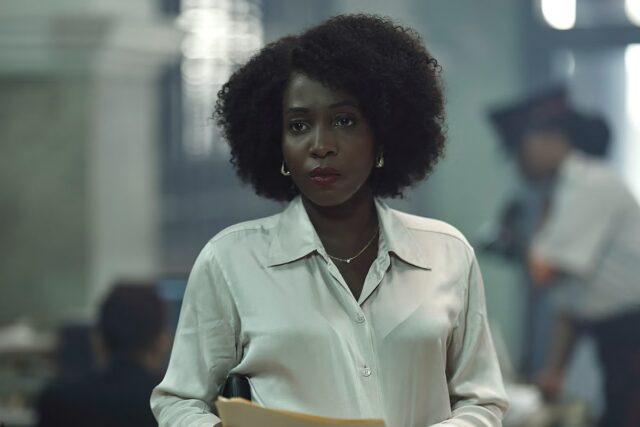
Credit: HBO
In the mood for an edgy British crime series? HBO has you covered with Get Millie Black, starring Tamara Lawrance as a Jamaican-born detective who gets kicked out of Scotland Yard and finds herself back home, working a missing persons case with the Jamaican Police Force. That brings her and partner Curtis (Gershwyn Eustache) into conflict with the wealthy and powerful ruling family of Kingston, with a possible connection to the London case that led to Millie’s ouster from the Yard.
She’s also dealing with her estranged transgender sister, Hibiscus (Chyna McQueen), who insists on living in a slum area called the Gully, and trying to navigate her love life. Get Millie Black is a good, meaty procedural with a compelling lead, but what really makes the series is the authentic Jamaican setting, and the way the viewer is effortlessly immersed in the local dynamics and cultural/political tensions of Kingston—right down to the dialect (HBO has helpfully provided subtitles, which do come in handy at times).
—Jennifer Ouellette
Cursed Gold (National Geographic/Disney+)
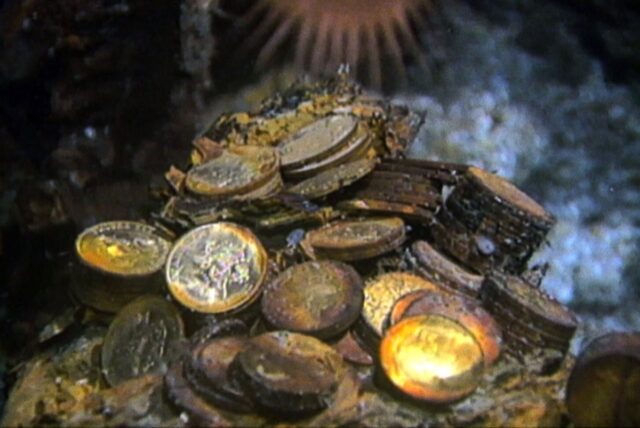
Credit: Recovery Limited Partnership Liquidating Trust
Many people dream of finding lost or hidden treasure, but sometimes realizing that dream turns out to be a nightmare. Such was the case for Tommy Thompson, an American treasure hunter who famously beat the odds to discover the location of the SS Central America shipwreck (aka the “ship of gold”) in 1988. Thompson and his team recovered significant amounts of gold and artifacts to great fanfare, but the euphoria proved short-lived. His many travails make the perfect fodder for National Geographic’s riveting three-part documentary about Thompson’s spectacular rise and precipitous fall: Cursed Gold: A Shipwreck Scandal, based on a 1998 book by Gary Kinder.
Director Sam Bedstead read Kinder’s book and wanted to tell his own version of Thompson’s story, including everything that happened after the book was published. A lot happened, including Thompson panicking and going on the run in 2012, stashing some $4 million in offshore accounts. (Thompson is currently in prison for contempt of court.) Bedstead combed through over 700 pages of court transcripts and more than 600 hours of archival footage from the original salvage expedition to make Cursed Gold, as well as conducting follow-up interviews with many of the relevant parties. The end result is a documentary that plays like a thriller, with Thompson as the semi-tragic figure at the center.
—Jennifer Ouellette
Moonflower Murders (PBS)
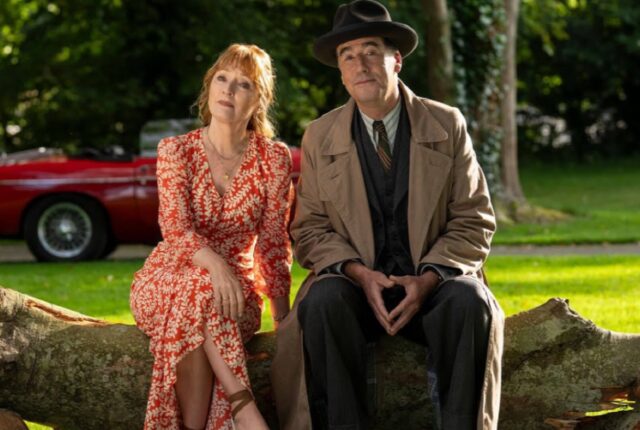
Credit: PBS
This is the follow-up to 2023’s delightful Magpie Murders, in which literary editor Susan Ryland (Lesley Manville) solved the murder of her bestselling author Alan Conway (Conleth Hill) and located the missing final chapter of Conway’s last manuscript—which just happened to be crucial to identifying the killer. She was helped along the way by recurring imaginary conversations with Conway’s star detective Atticus Pund (Timothy McMullan), playing out Conway’s final fictional mystery alongside Susan’s real investigation.
It was clever gimmick that made for a delightful series, and Moonflower Murders gives us more of the same story-within-a-story framework. Susan is now semi-retired and living in Crete with fiancé Andreas (Alexandros Logothetis) as they struggle to revive the fortunes of the hotel Andreas purchased. She is approached by a hotelier couple whose daughter Cecily has gone missing. Cecily called them after reading one of Conway’s Atticus Pund novels and said the wrong man had been jailed for a murder that took place at the couple’s hotel eight years earlier.
The solution is hidden somewhere in the novel, because Conway had a habit of using thinly veiled people and events from real life. Susan must track down what happened to Cecily with Imaginary Atticus by her side once again, offering helpful insights. And maybe she’ll figure out what really happened with the hotel murder and exonerate an innocent man. Moonflower Murders is the perfect comfort watch for a long, lazy weekend.
—Jennifer Ouellette
Agatha All Along (Disney+)
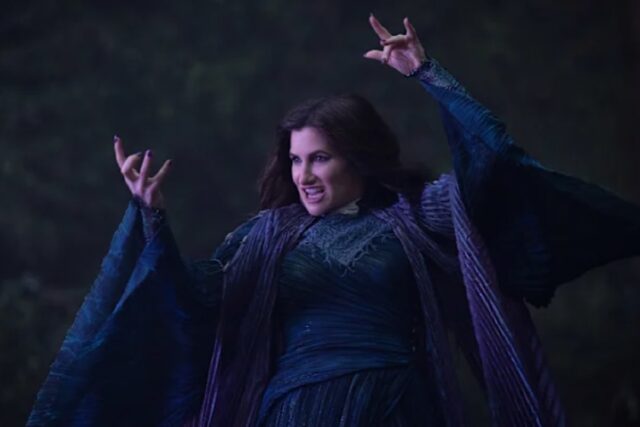
Credit: Disney+
The MCU’s foray into streaming television has produced mixed results, but one of my favorites is the weirdly inventive, oh-so-meta WandaVision. I’m happy to report that the spinoff sequel, Agatha All Along, taps into that same offbeat creativity, giving us a welcome reminder of just how good the MCU can be when it’s firing on all storytelling cylinders.
We find Agatha Harkness (Katherine Hahn) still under Wanda Maximoff’s original spell as a nosy neighbor in a small town. A mysterious young Teen (Joe Locke) breaks the hex and asks her to show him the way to the legendary Witches’ Road, a journey involving a series of trials. The reward: any surviving witches get what they most desire. Agatha wants her powers back—and Teen, well, his motives are murkier, as is his identity. Rounding out the coven are Lilia (Patti LuPone), a divination witch; Jennifer (Sasheer Zamata), a potions witch; Alice (Ali Ahn), a protection witch; and Sharon Davis (Debra Jo Rupp, reprising her WandaVision role) standing in for a green witch on account of her gardening skills. Agatha is also being pursued by her ex, Rio Vidal (Aubrey Plaza), a powerful green witch, as well as the Salem Seven, vengeful wraiths of Agatha’s first coven.
A large part of WandaVision‘s delight came from the various sitcom styles featured in each episode. Agatha All Along has its own take on that approach: Each trial takes on the setting and style of witches from popular culture (even the ending credits play on this). And the seventh episode, “Death’s Hand in Mine,” focusing on Lilia and a deadly tarot reading, might just be the best single episode of all the Marvel TV series to date. In my review, I questioned one creative choice in the series finale, which didn’t quite work for me. On the whole, though, Agatha All Along is marvelously entertaining, binge-able fun with just enough emotional resonance and heartbreak to give it a bit of depth.
—Jennifer Ouellette
Hysteria (Peacock)
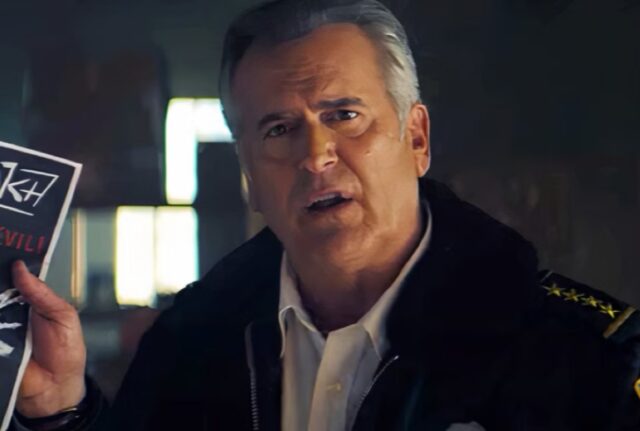
Credit: Peacock
Hysteria is a show about a small US town in the’ 80s that descends into paranoia, fear, and a hive-mind-like frenzy after a high school boy goes missing in the ’80s. I came to the show for Bruce Campbell, hoping for another tale of horror with a dark comedy twist à la Evil Dead. But I ended up staying for a standout, memorable cast and a fascinating dive into how hive minds form amid uncertainty and danger.
Things get more interesting when a trio of outcast teens pretend to be Satanists to get people interested in their rock band. The falsehood simultaneously makes the children more popular in their school and pariahs in their town, as people suspect that they had something to do with the missing boy. Strong acting and personable deliveries from all three actors (Emjay Anthony as Dylan, Kezii Curtis as Spud, and, especially, Chiara Aurelia as Jordy) kept me pressing play as the teens toed the blurring line between their lie and their reality.
Their classmates, who Dylan desperately wants to impress, are also captivating. At times, you may actually find yourself rooting for the popular girl or jock, who turn out to have darker inclinations and more layers than their typical stereotypes. In fact, no character, including Dylan’s parents (Julie Bowen from Modern Family and voice actor and Port Charles star Nolan North) and Christian mother Tracy (Anna Camp, True Blood), are what they seem.
While maintaining a quirky and mysterious air, the show yields questions like, is a cult real if its creators are pretending but its followers aren’t? What can leave adults vulnerable to that special flavor of panic that makes them question their own families, faith leaders, and even the genre of rock and roll? And how easy is it for people to fall victim to mass hysteria when confronted with real-life peril, confusing phenomena, and a relatable desire to be part of something, which doesn’t go away after high school?
Toss in some classic rock and roll and appearances from an extraordinary entity, and you have a one-of-a-kind comedy horror that doesn’t go where you expect but brings you on a hell of a ride that’ll make you wonder if you, too, might have been part of the hysteria.
And yes, Campbell does deliver.
—Scharon Harding
Rivals (Hulu)
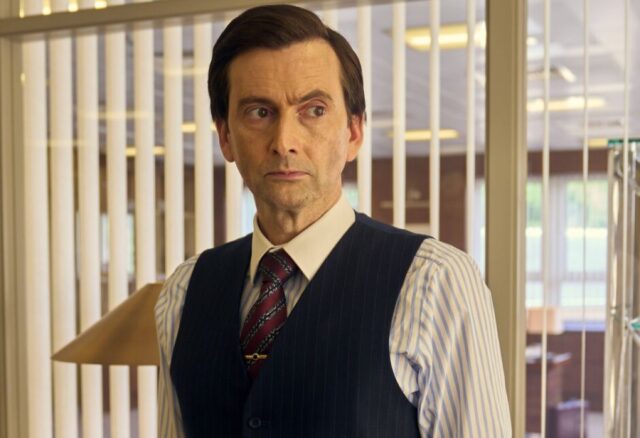
Credit: Hulu
This is an adaptation of a 1988 Jilly Cooper novel of the same name. It’s a contemporary spin, although the series is still set in 1980s England in the Cotswolds region, which makes for a super fun soundtrack packed with ’80s nostalgia. The central rivals are Tony, Lord Baddingham (David Tennant), a nouveau riche managing director of a TV station who married into nobility, and Rupert Campbell-Black (Alex Hassell), a retired Olympics show jumper and incorrigible womanizer who represents aristocratic class and old money. But there’s plenty of scheming and cattiness and class warfare to go around among the rest of the colorful ensemble cast.
It’s nice to see Tennant sink his teeth into such a villainous role, and he’s well-matched against Hassell, who is the perfect charming louche with just enough lingering shreds of humanity to occasionally do something decent. Rivals is a briskly paced and positively addictive British romp with plenty of scandalous twists, lusty ribald humor, and more serious notes of genuine pain lurking beneath the frothy surface. You end up really caring about the characters, even the more dastardly ones—a tribute to the stellar cast and writing.
—Jennifer Ouellette
Monsieur Spade (AMC)
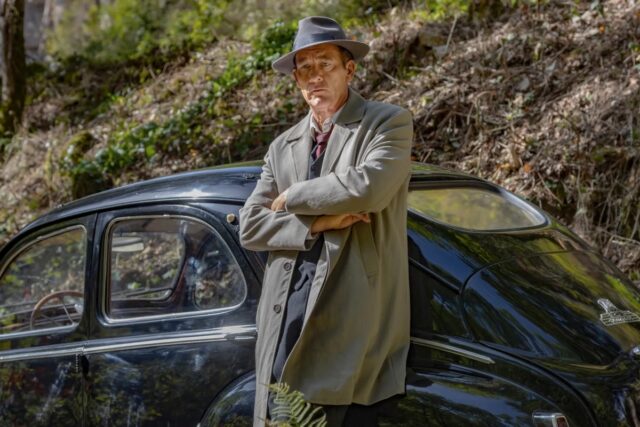
Credit: AMC
Along with Raymond Chandler, Dashiell Hammet‘s legendary private detective Sam Spade pretty much defined noir crime fiction in the 1930s. But what happens when the hard-boiled detective gets old and longs for a peaceful retirement? That’s the premise behind Monsieur Spade, starring Clive Owen as a middle-aged Spade who has left his past behind for a peaceful life in the small French town of Bozouls in the 1960s.
Spade is mourning the loss of his wife, Gabrielle (Chiara Mastroianni), who thoughtfully left him her estate so he could continue his life of leisure. That quiet existence is shattered by the brutal murder of six beloved nuns in the nearby convent. They had been caring for Spade’s rebellious teenage ward, Teresa (Cara Bossom), whose life may now be in danger due to the shenanigans of her criminal biological father. Spade must find the fortitude for one last case, digging up secrets many in the town would prefer to stay buried, and face off against an old adversary. Owen makes a terrific older Spade, all craggy features and rasping voice. It’s a good, twisty thriller with great characters and a satisfying conclusion, very much in the spirit of the original.
—Jennifer Ouellette
Slow Horses S4 (Apple TV+)
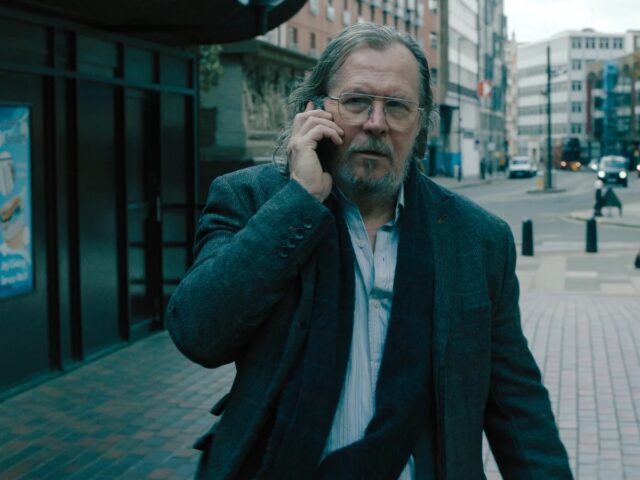
Credit: Apple TV+
Four seasons in and counting, there is still no better spy thriller on TV these than this always riveting British spy thriller, based on the “Slough House” series of novels by Mick Herron, and it just keeps getting better. Slough House is basically a dead-end administrative purgatory for MI5 agents who screw up or otherwise fall short of expectations, mockingly derided as the “slow horses” of the title. Slough House is headed by the slovenly, flatulent, and frequently intoxicated Jackson Lamb (Gary Oldman), who routinely heaps verbal abuse on his staff but is nonetheless a brilliant spymaster in his own smelly way.
S4 kicks off with a suicide bomber striking a London shopping mall, whose name turns out to be that of an MI5 “cold body” (fake identity). There is also an assassination attempt against retired senior MI5 officer David Cartwright (Jonathan Pryce), grandfather to slow horse River Cartwright (Jack Lowden), and the two events might just be connected. Slow Horses has already been renewed for more seasons and why not? It’s just as taut, thrilling, sardonically humorous, and occasionally heartbreaking as ever, with no sign of flagging.
—Jennifer Ouellette
Light Shop (Hulu)
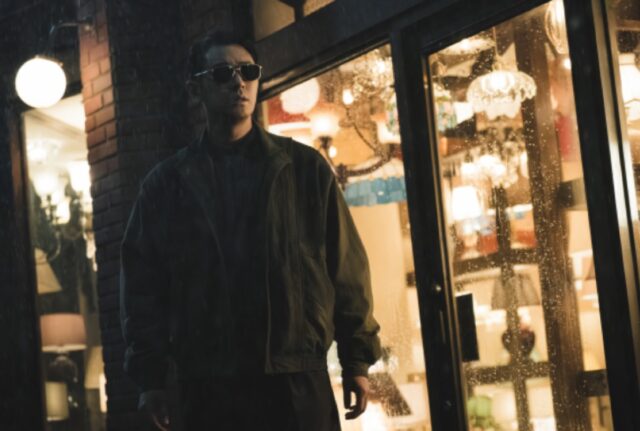
Credit: Hulu
I’m not sure I’ve ever seen anything quite like Light Shop, an eerily haunting Korean horror mystery adapted from a popular webtoon by Kang Full. Ju Ji-Hoon stars as Jung Won-Young, the enigmatic owner of the titular light shop, located at the end of a foreboding dark alley. Various strangers are drawn to the light shop, perhaps because it’s not just a place to purchase bulbs; it’s also a nexus connecting the worlds of the living and the dead. Won-Young is able to discern which is which—and which of the lost souls that wander into his shop might just be trapped between the two worlds.
There’s the young man on a bus who keeps seeing the same mysterious woman sitting on the bench at his stop, until he finally invites her home and quickly realizes she’s not what she seems. There’s a screenwriter who moves into a new house and discovers that it might be haunted; a young schoolgirl who comes by the shop every day for her mother and yet never seems to buy any bulbs; a middle-aged man who wanders aimlessly through the alley weeping while soaking wet; and a sad silent woman in red high heels who morphs into an elongated shambling zombie-like figure in the dark.
Fair warning: The first few episodes can be disorienting because it’s so challenging to figure out what’s going on. But the disparate threads of all the individual stories start to come together by the end of the fourth episode as we learn how the seemingly random strangers are connected, and the rest of the series brings it all home in a powerful finale that is equal parts horrifying and bittersweet. I don’t know if Kang Full has more stories to tell—I can see Light Shop working as an anthology series—but these eight episodes stand on their own as some truly innovative storytelling.
—Jennifer Ouellette
Bad Monkey (Apple TV+)
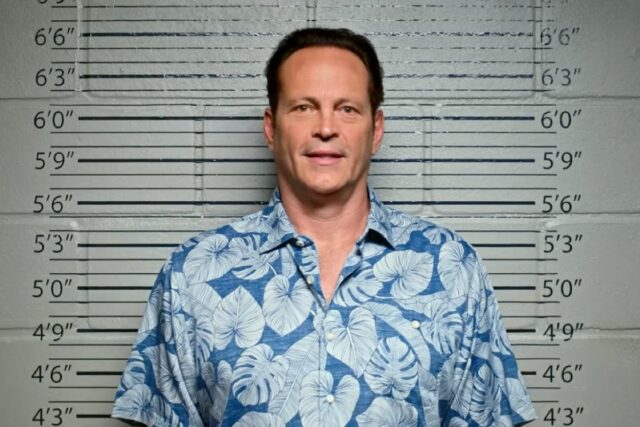
Credit: Apple TV+
Based on Carl Hiaasen’s 2013 novel of the same name, Bad Monkey is the perfect vehicle for Vince Vaughn’s roguish motor-mouth charm. He plays Andrew Yancy, a demoted detective who now does restaurant inspections, until his friend (another detective) tells him about a severed arm recovered by a tourist in the waters of South Florida. So begins a wild caper involving insurance fraud, real estate developers, multiple murders, at least one faked death, and a bit of spooky Obeah voodoo for good measure, courtesy of the Dragon Queen (Jodie Turner-Smith).
In other words, it’s pretty much vintage Hiaasen and Bad Monkey is a particularly good adaptation. The characters and casting are perfection, especially Meredith Harper as Eve Stripling, who seems like your average shallow, manipulative, gold-digging beauty—until you realize jut how ruthless she’s prepared to be to get what she wants. Props also to Zach Braff as Izzy, who gets caught up in the fraud scheme and pays a heavy price, as well as Scott Glenn as Yancy’s father, dishing laconic wisdom while fishing on a dock to anyone who cares to listen.
—Jennifer Ouellette
A Man on the Inside (Netflix)
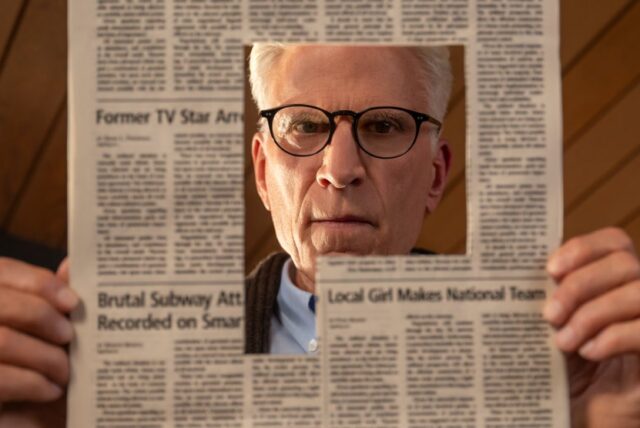
Credit: Netflix
For those who miss Ted Danson’s endearing portrayal of Michael, the human-loving demon in The Good Place, we now have A Man on the Inside, created by Michael Schur (who also created The Good Place). Danson plays Charles Nieuwendyk, a very Michael-like recently widowed retired engineering professor who gets hired by a private detective to go undercover at a San Francisco retirement community. A ruby necklace has gone missing, and it’s Charles’s job to snoop around and ferret out the culprit.
Once again, Schur has assembled a stellar cast of diverse characters, with crisp, whip-smart writing. The show is alternatively funny, sweet, sour, and touching, while never lapsing into schmaltz—although we’ll risk a bit of schmaltz to observe that the real meaning is not the mystery of the ruby necklace but the relationships and personal growth that occur along the way. At its heart, the show is about coming to terms with the grief and loneliness that so often comes with aging. Netflix just renewed A Man on the Inside for a second season, so we’ll get to see what Charles gets up to on his next undercover assignment.
—Jennifer Ouellette
Fallout (Prime Video)
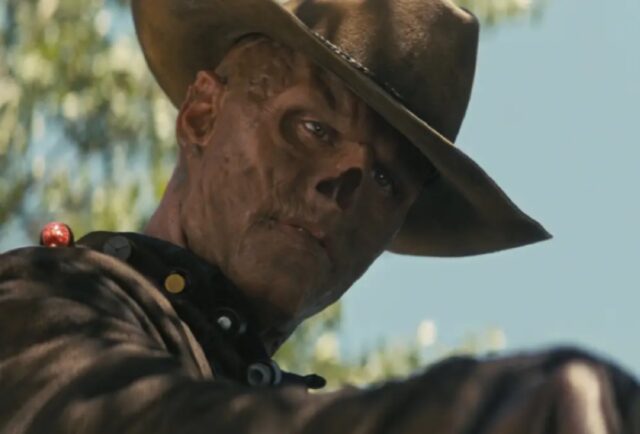
Credit: Prime Video
Amazon has had a rocky history with big, geeky properties making their way onto Prime Video. The Wheel of Time wasn’t for everyone, and I have almost nothing good to say about The Lord of the Rings: The Rings of Power. Fallout broke that bad streak; as a video game adaptation, it’s right up there with The Last of Us. A specific cocktail of tongue-in-cheek humor, sci-fi campiness, strong themes, great characters, and visceral violence came together into a fantastic show.
Fallout‘s violence can be sudden, brutal, and casual. Heads explode from shotgun blasts like popped bubbles in Cronenbergian splatters. Someone’s face gets ripped right off, and another person gets a fork plunged into their eyeball. Homages to the Bethesda games’ slow-motion kills are aplenty, with gratuitous shots of bullets tearing through bodies and painting the walls red. It’s so over the top that it didn’t bother me; it’s cartoon violence, ultimately, though a couple of instances of dog-related violence didn’t feel too great. Of course, the games were like this, too. It just hits a little differently when it’s live action.
The Fallout games are hilarious—goofy, even, and that tracks right into the show. It’s not always as laugh-out-loud funny as I expected (though it sometimes is), but it’s definitely fun, and there are some strong jokes. Even the violence is hilarious if you have the stomach for it. You don’t have to have played the games to appreciate the action or comedy in Fallout, but there’s obviously a whole additional layer here for people who’ve been playing the games for years. Almost every shot includes something for fans of the games to recognize, from Nuka-Cola bottles to Assaultron robot frames to Vault Boy bobbleheads.
I love the fact that this show focuses on three different characters in equal measure, each of them embodying a type of character a player of Fallout might create. Lucy is the do-gooder vault dweller, Maximus is the aspirant warrior, and The Ghoul is the wasteland rogue. Through those characters, the show captures the full range of the Fallout experience. What we see happen in the plot seems to naturally come from the characters’ personalities, values, words, and actions.
On their own, all those elements made for entertaining viewing, but there has always been more to Fallout: It has a point of view and strong themes in its satirical take on American culture. The TV series does those themes justice. But don’t for a second think that Fallout‘s point of view relates to self-righteous moralizing. By the end of the season, you have at least one big reason to hate every faction, all of which are deeply flawed in their visions of what the world order should look like or how to achieve it.
—Samuel Axon
And now, for our top TV pick of 2024:
Shogun (FX/Hulu)
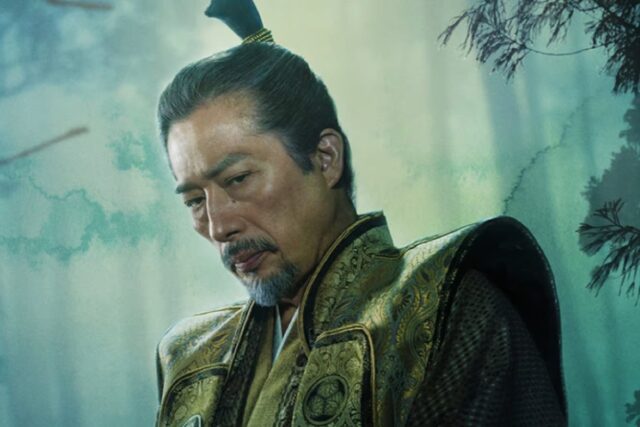
Credit: FX/Hulu
This sumptuous series is adapted from James Clavell’s hugely influential 1975 epic novel of the same name. It’s a fictionalized account of the key players and events in 17th century feudal Japan that ultimately led to the naming of a new shōgun (central ruler), Tokugawa Ieyasu, and the advent of the Edo period. Clavell’s novel also includes a fictionalized version of an English navigator named William Adams, aka Miura Anjiin (“the pilot of Miura”), who was the first of his nation to reach Japan in 1600, eventually becoming a samurai and one of Tokugawa’s key advisers.
Cosmo Jarvis (Peaky Blinders, Raised by Wolves) stars as John Blackthorne (based on Adams) while Hiroyuki Sanada plays Toranaga (based on Tokugawa). Blackthorne finds himself embroiled in this hotbed of political intrigue when Toranaga takes a shine to him, envisioning a key role for the English pilot in Toranaga’s own secret machinations. Caught between them is the alluring translator, Toda Mariko (Anna Sawai), who finds herself torn between her loyalty to Toranaga and her Catholic faith—not to mention a growing attraction to the foreign Anjin.
The storytelling, the characters, the stellar performances, the expert pacing all contribute to the show’s success. But it’s also a visually stunning achievement that brings 17th century feudal Japan to vivid life, thanks to masterful visual effects that have been woven in so seamlessly, it can be challenging to distinguish between the CGI and the real footage. It’s been described as “a Game of Thrones set in 17th century Japan,” although calling it a 17th century Japanese Godfather also captures the essence of the series. Two more seasons are in development, and we’ll be watching. But it was Clavell’s timeless story and characters that make Shōgun what it is; the showrunners have a massive challenge ahead to meet that highest of bars.
—Jennifer Ouellette
Jennifer is a senior reporter at Ars Technica with a particular focus on where science meets culture, covering everything from physics and related interdisciplinary topics to her favorite films and TV series. Jennifer lives in Baltimore with her spouse, physicist Sean M. Carroll, and their two cats, Ariel and Caliban.
